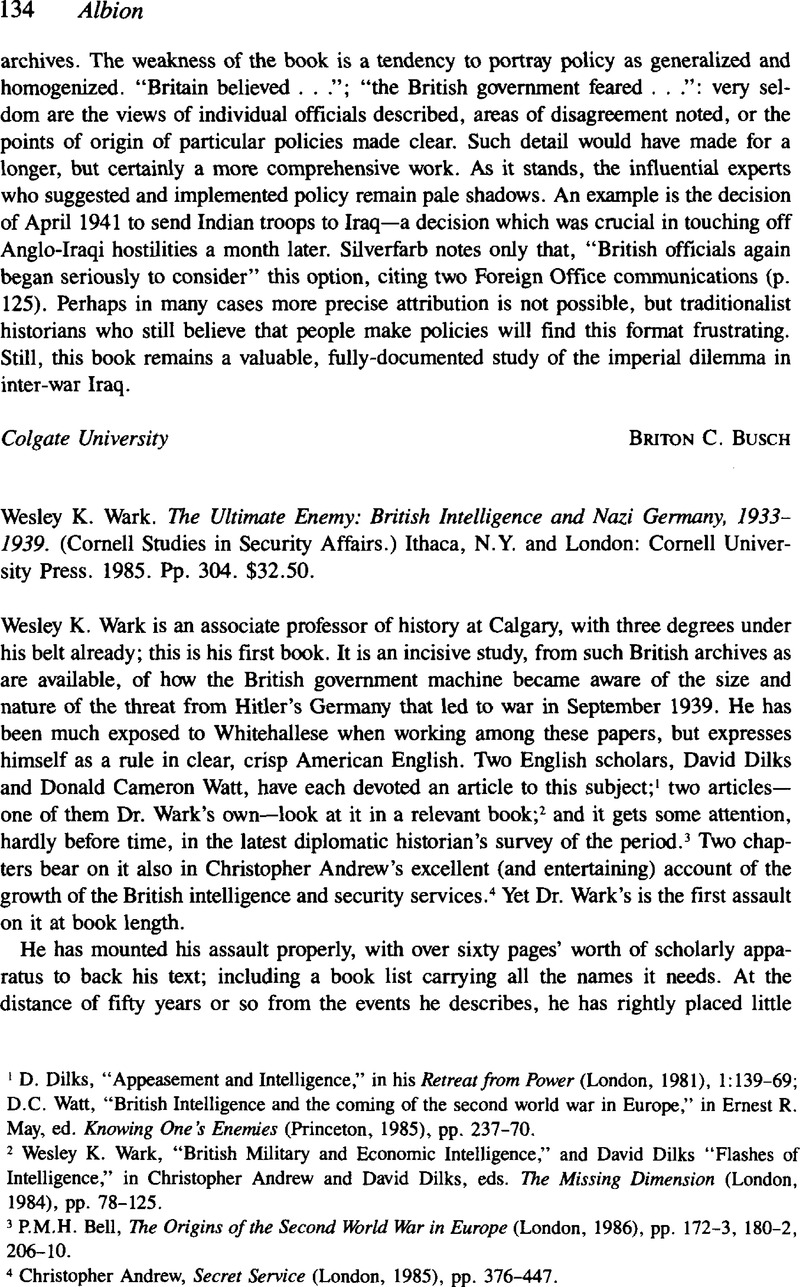No CrossRef data available.
Published online by Cambridge University Press: 11 July 2014

1 Dilks, D., “Appeasement and Intelligence,” in his Retreat from Power (London, 1981), 1:139–69CrossRefGoogle Scholar; Watt, D.C., “British Intelligence and the coming of the second world war in Europe,” in May, Ernest R., ed. Knowing One's Enemies (Princeton, 1985), pp. 237–70Google Scholar.
2 Wark, Wesley K., “British Military and Economic Intelligence,” and Dilks, David “Flashes of Intelligence,” in Christopher Andrew and David Dilks, eds. The Missing Dimension (London, 1984), pp. 78–125CrossRefGoogle Scholar.
3 Bell, P.M.H., The Origins of the Second World War in Europe (London, 1986), pp. 172–3, 180–2, 206–10Google Scholar.
4 Andrew, Christopher, Secret Service (London, 1985), pp. 376–447Google Scholar.
5 See Howarth, Patrick, Intelligence Chief Extraordinary (London, 1986)Google Scholar.